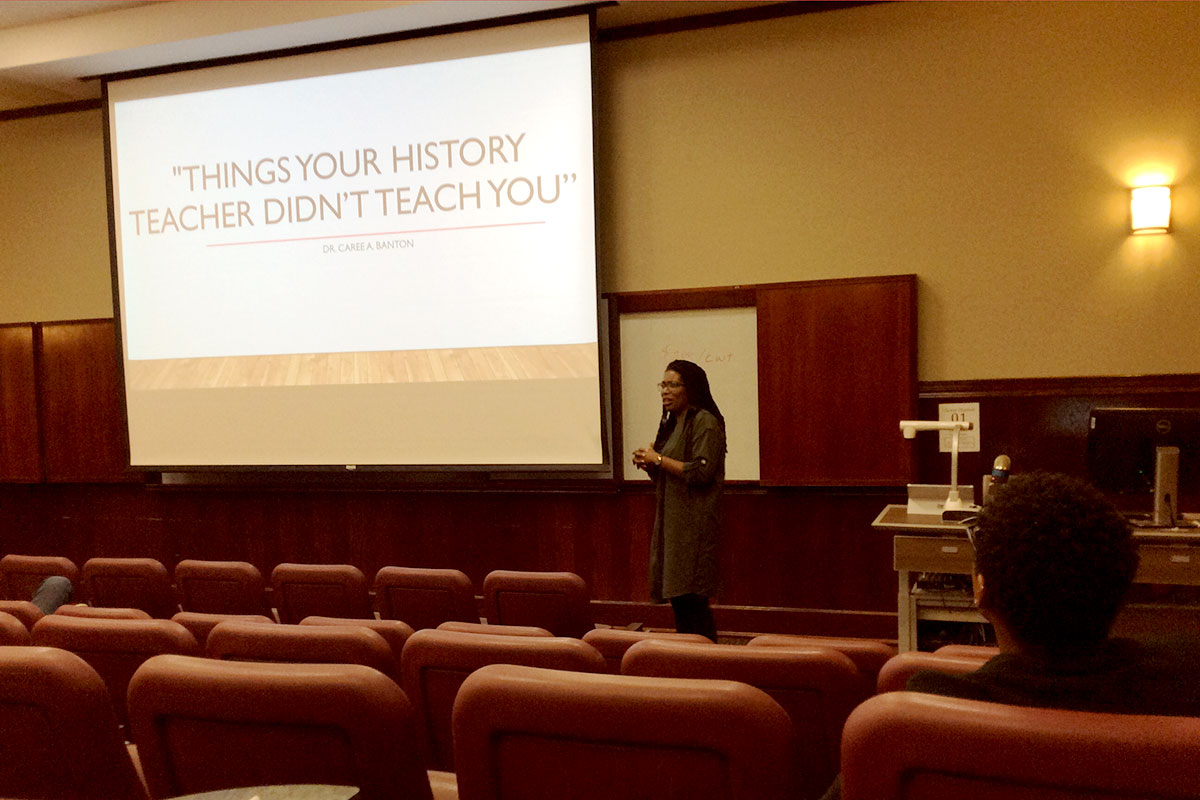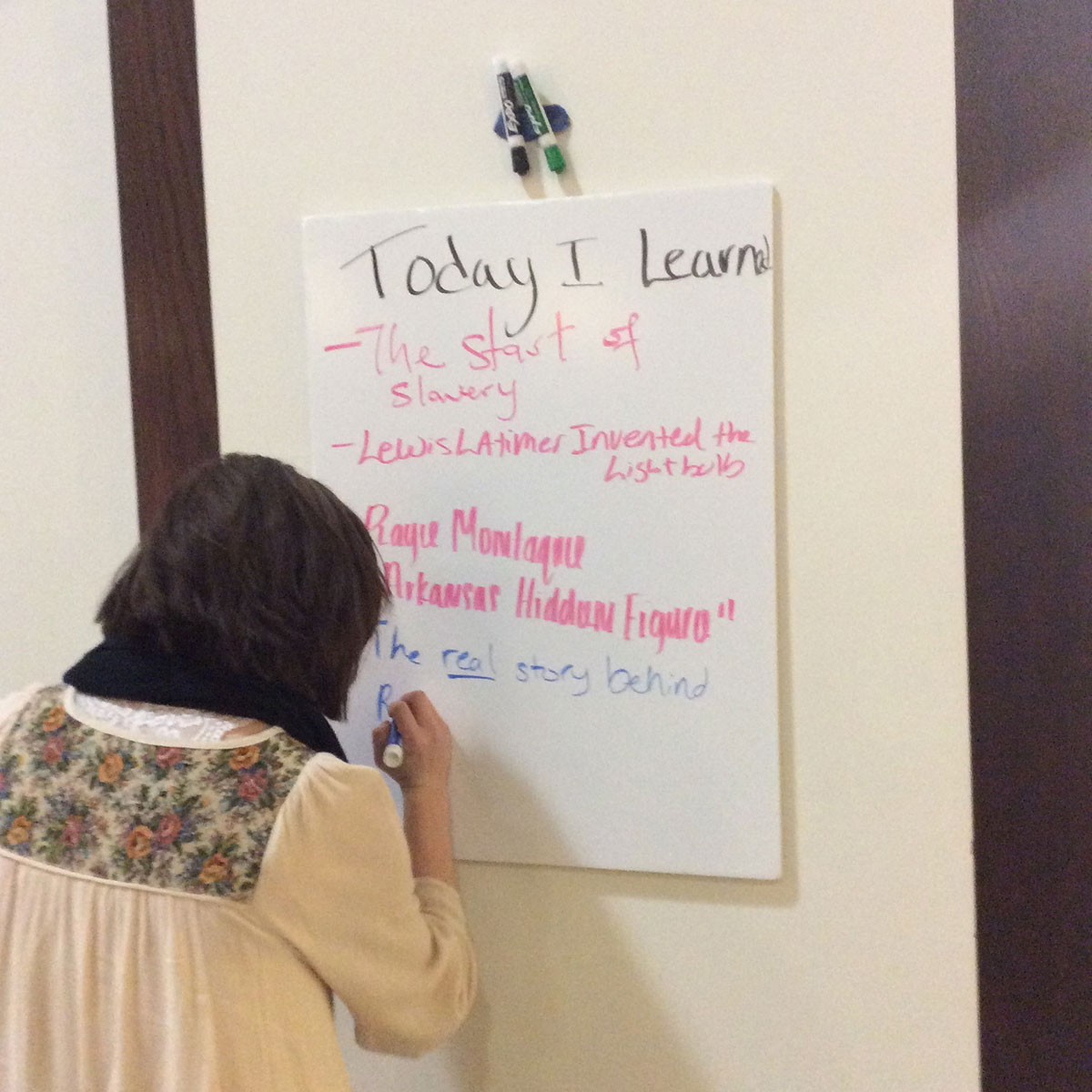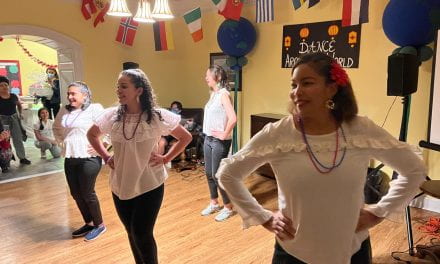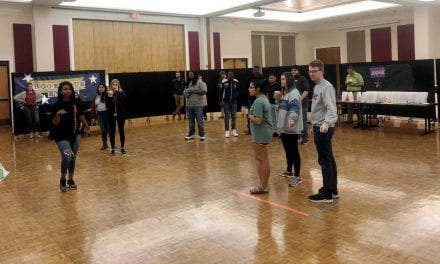Pictured above: Caree Banton, assistant professor of history, presents “Things Your History Teacher Didn’t Teach You” at the Sweet Chariot event.
By Victoria Sautner
Pomfret Hall Resident Assistant
University Housing staff held an event Feb. 1 called Sweet Chariot.
The goal was to talk about black history specifically regarding the Underground Railroad. The discussion took a much broader view of black history in America with contributions from the history and music departments.
Caree Banton, assistant professor of history, was the guest speaker and her topic was “Things Your History Teacher Didn’t Teach You”.
Before coming she polled people and gathered 10 topics that they never learned in their History class, but wish they would have.
Not Taught in History Class
- Inventions that most people are unaware were made by Black Americans
- How American racism almost lost us the space race as depicted through the movie “Hidden Figures”
- Arkansas had their own “Hidden Figure”: Ray Montague
- Did slavery really end? Review of the 13th Amendment
- Esther Jones was the real Betty Boop
- The Venus Hottentot—the spectacle made out of one woman’s body
- Black Wall Street—The Greenwood neighborhood in Tulsa, Okla., was a thriving place in the early 19th Century with more than 600 businesses and also one of the most devastating massacres in the U.S. history of race relations
- Edmonia Lewis was an American Sculptor who was known for her exquisite marble sculptures
- Claudette Colvin was arrested for not giving up her seat 9 months before Rosa Parks, but as a teenager she wasn’t seen as a good “face” for the civil rights movement.
Bacon’s Rebellion of 1676 — no longer would poor white people and black people serve together as the lowest class of citizens. This rebellion would make black labor the only stolen labor, elevating the class of the poor whitesA lot of the topics presented were shocking that we did not learn them in our classes because they were very impactful.
Something interesting that Banton said regarding black inventions was, “What if the person who was meant to find the cure for cancer was enslaved or not given the opportunity to education.”
That question sparked a good conversation and ideas of what do we lose as a country by holding back part of our community.
Another interesting piece of history was how Edmonia Lewis was the first recorded person to be arrested for refusing to move on the bus and not Rosa Parks.
Banton pointed out some intriguing facts about the differences between Rosa Parks and Edmonia Lewis that made Rosa more “socially acceptable” than Edmonia.
Inspirational Chorale
Jeffery Murdock, the director of the university’s Inspirational Chorale, came and spoke about the history of gospel music specifically during the civil rights era. He led the chorale in a couple of gospel songs.
He led the chorale in a couple of gospel songs.
Above: The Inspirational Chorale perform at the Hot Springs Convention Center
After the presentation, Chartwells provided “soul food” which included chicken wings, collard greens, shrimp and grits, corn bread, and sweet potato pie amongst other foods. The food was delicious and the conversations afterward were lively.
Joelle White, a sophomore, said, “I loved the presentation and the choir performance was phenomenal.”







Recent Comments